AITA for telling my family to stop celebrating?
Six years ago, a chance encounter with Maggie, a sweet and gentle soul, blossomed into a bond that transcended generations. From knitting lessons to shared TV moments and quiet acts of care, their connection was a tapestry woven with kindness, trust, and love. Maggie, a WWII nurse with a heart full of stories, became more than a neighbor—she became family.
When Maggie passed away peacefully at 94, the world dimmed with grief, leaving an ache that words cannot soothe. Yet, in the wake of loss, a surprising legacy emerged—a testament to the depth of their friendship. Maggie’s final gift, a million-dollar inheritance and cherished memories, stood as a powerful reminder that love endures beyond time, forever shaping the life of the one she held dear.

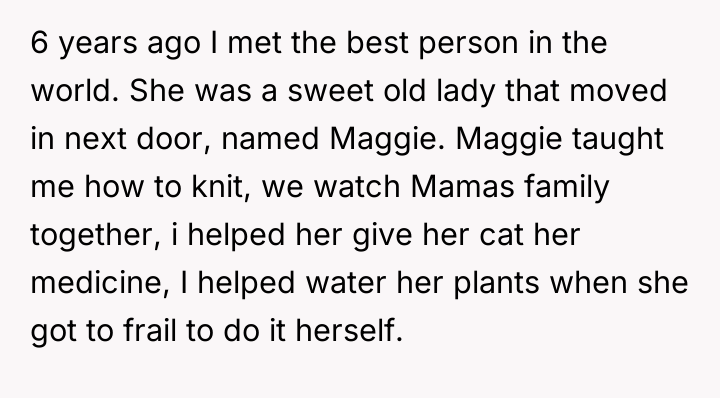
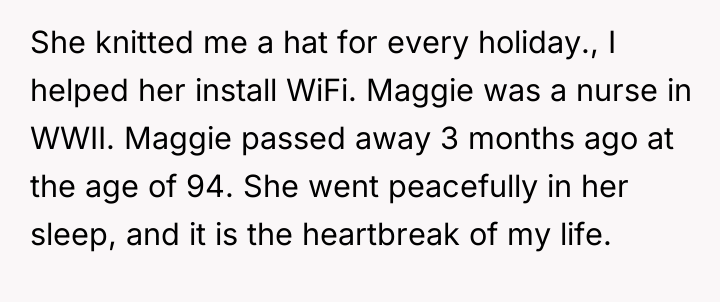
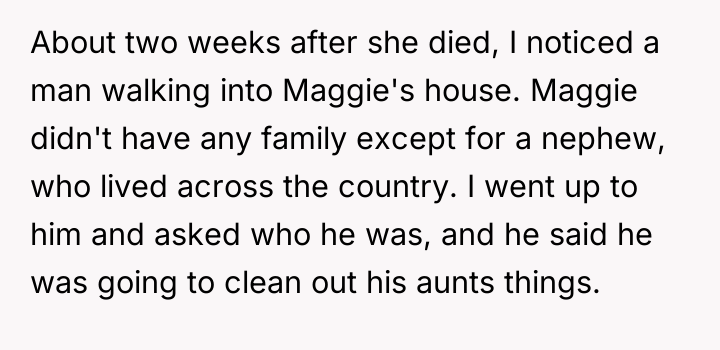
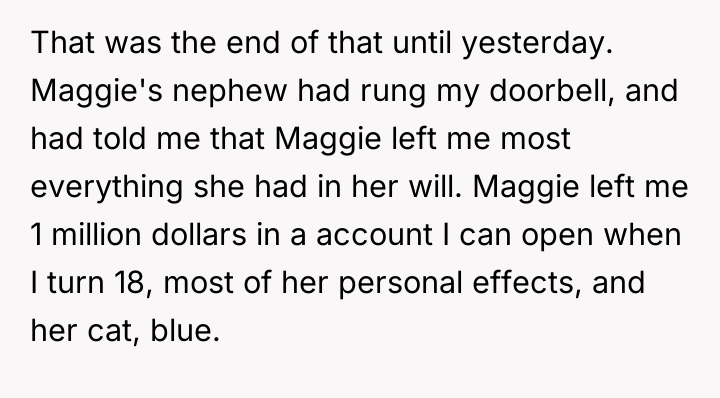
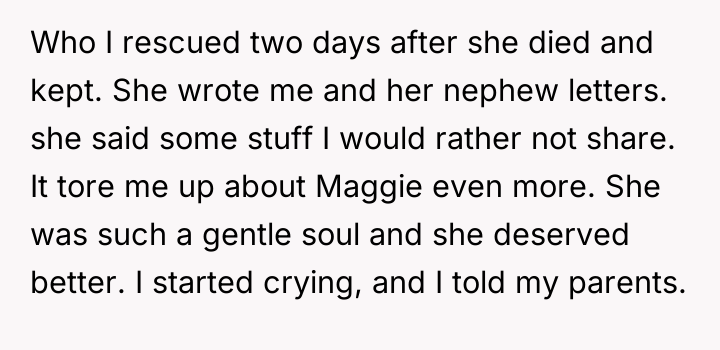


Subscribe to Our Newsletter
As renowned psychologist Dr. Elisabeth Kübler-Ross, whose work extensively covers the stages of grief, explained, “The reality is that you will probably have to experience the stages of grief (denial, anger, bargaining, depression, acceptance) many times as you struggle to integrate the loss into your life.” The OP is clearly navigating the complex terrain of grief following the loss of a deeply valued, mentor-like figure, Maggie. The actions described—rescuing the cat, focusing on the personal effects and letters—indicate that the OP valued the relationship and emotional connection far above any material gain. The parents' immediate shift to celebrating the $1 million inheritance demonstrates a failure to recognize or validate the OP's current emotional needs. This response from the parents is a common, though often poorly executed, way of showing support, where they focus on the tangible positive outcome (college funding) rather than the emotional void left by the loss. The brother's intervention further suggests a misunderstanding of grief dynamics, viewing the OP's sadness as an obstacle to their good fortune. The OP's reaction of being upset by the celebration is appropriate given the depth of their attachment to Maggie. Their actions were not fundamentally inappropriate, but their communication style, likely fueled by distress, led to conflict. To handle this better, the OP should communicate clearly to their parents that they need space to mourn the person first, acknowledging the money's importance later. A constructive recommendation would be to explicitly state, 'I need a week to process Maggie's passing before we discuss the finances.' This sets a necessary boundary that honors the grief process without rejecting the future benefit outright.
THE COMMENTS SECTION WENT WILD – REDDIT HAD *A LOT* TO SAY ABOUT THIS ONE.:
When users weighed in, they held nothing back. It’s a raw, honest look at what people really think.



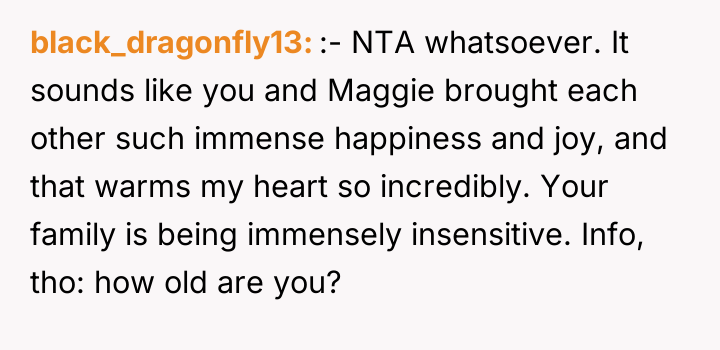

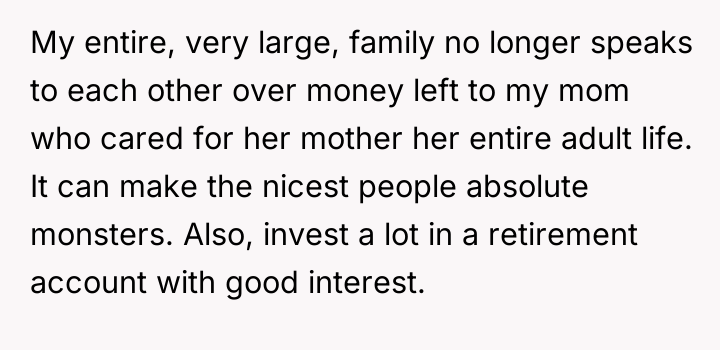






The original poster (OP) is experiencing intense grief over the loss of their elderly neighbor, Maggie, and is deeply distressed by their parents' immediate and enthusiastic celebration of the unexpected inheritance left by Maggie. The central conflict is the OP's need to process profound loss versus the parents' focus on the significant financial benefit, causing the OP to feel invalidated and misunderstood.
Is the OP being unreasonable and insensitive by prioritizing their grief and relationship with Maggie over a substantial, life-changing monetary gift that their parents are happy about, or are the parents failing to recognize the OP's emotional pain during this difficult period?